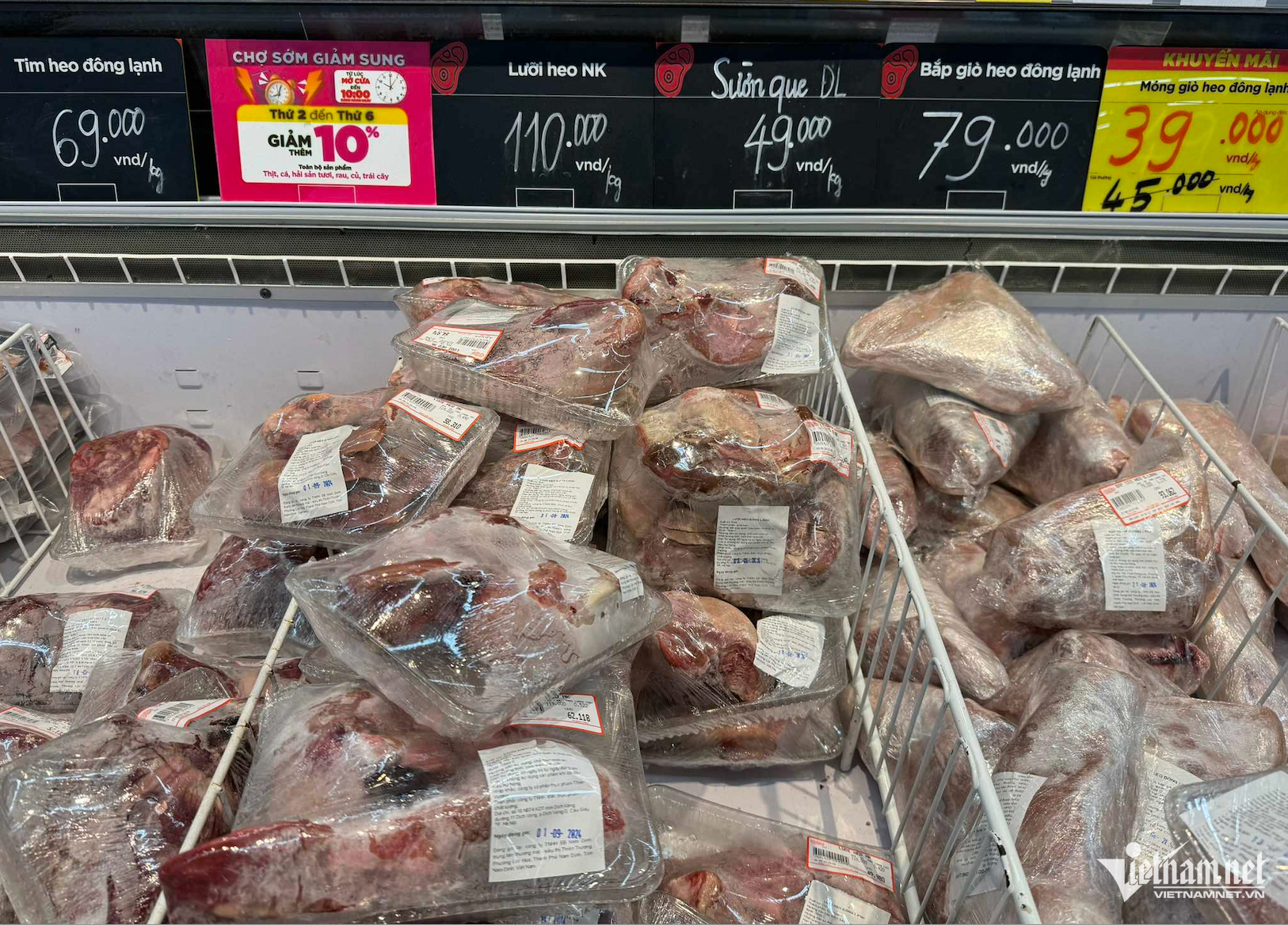
According to the Ministry of Agriculture and Rural Development (MARD), Vietnam's meat and animal by-products were mainly imported from India, the United States, Russia, Germany, and South Korea.
From May 16, 2024 - when Circular 04 took effect - through September 25, inspections found 55 shipments testing positive for Salmonella (a bacterium that causes diarrhea, fever, and other illnesses) out of a total of 6,679 shipments tested for the bacteria. This accounts for nearly 1% of all shipments tested.
Without these Salmonella tests, nearly 1,320 tons of contaminated meat would have entered Vietnam, posing a high risk of disease outbreaks, food safety concerns, and potential harm to consumers’ health, the MARD emphasized.
The MARD explained that the quarantine process for negative-testing shipments takes between 1-3 days. Only about 1% of animal product shipments tested positive for Salmonella, requiring an additional 5-6 days for culture confirmation, in compliance with existing legal regulations.
In relation to Circular 04, the Department of Animal Health held discussions with agricultural attachés and embassy officials from Australia, New Zealand, the United Kingdom, and Canada. These countries indicated no significant issues with the regulation.
However, agricultural attachés from the United States, Brazil, Singapore, France, South Korea, Italy, Spain, Denmark, and the Netherlands expressed concerns that Circular 04 could complicate their countries’ meat exports to Vietnam and requested clarification on regulations related to animal and animal product quarantine.
In response, the Department of Animal Health reiterated that Circular 04 complies with international legal standards and has not posed difficulties for importers so far.
The department noted that other countries impose similarly strict regulations when importing Vietnamese meat, eggs, and dairy products. For example, the European Union (EU) prohibits the presence of Salmonella spp in 25 grams of meat, while total E. coli levels must not exceed specific limits depending on the product type. The United Kingdom requires Vietnam to implement a national monitoring program for Salmonella spp in processed chicken products, which are currently being negotiated for export.
South Korea has similar requirements for controlling Salmonella spp. Japan, Russia, and the Eurasian Economic Union have also demanded that Vietnam monitor Salmonella spp when exporting cooked chicken to their markets.
China mandates the monitoring and testing of Salmonella spp when exporting dairy products to its market.
Domestically, businesses and associations have repeatedly petitioned the Prime Minister and MARD to tighten controls on imports to protect the local livestock industry and ensure consumer health.
Tam An